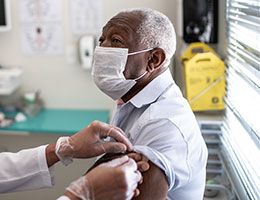C.G.H. Medical Center issued the following announcement on Feb. 16.
There's been a lot of talk about the efficacy rates of COVID-19 vaccines. But what does a 70% or a 95% rate really mean?
What is efficacy?
An efficacy rate measures how well a vaccine performed in clinical trials. The Pfizer-BioNTech vaccine, for instance, had a 95% efficacy rate. That's very high. It means that a person who got the vaccine in the trial had a 95% lower risk of getting sick than someone who got a placebo.
Vaccines with lower rates can still offer good protection, though. A 70% lower chance of getting sick is much better than nothing.
It's also important to note that overall efficacy rates don't measure mild vs. severe illness. They only measure who got sick and who did not. Some of the people for whom the vaccine was "not effective" may still have benefited from it by getting a less severe case of COVID-19. That's why you may see some vaccine makers give more than one rate. One rate describes the vaccine's overall efficacy, and one describes its efficacy against severe illness.
What is effectiveness?
In the months and years to come, you may hear another number discussed. A vaccine's effectiveness rate measures how well the vaccine performs outside clinical trials.
This real-world success is measured over time as more people get the shots. These rates may differ from those in clinical trials. That can be for a lot of reasons. It may be due to the more diverse population getting the vaccines. Or even factors as small as how a vaccine is stored or given to patients can make a difference.
The big picture
Keep this in mind: Vaccines don't need to be 100% effective to stop a pandemic. One good example is the flu vaccine. Studies show that the flu vaccine lowers the risk of illness by 40% to 60% in seasons when the vaccine is a good match to the flu viruses going around that year. Even that modest protection helps prevent widespread deaths from the flu each year.
Want to learn more about COVID-19 vaccines? Check out our Coronavirus health topic center.
Original source can be found here.

Source: C.G.H. Medical Center



 Alerts Sign-up
Alerts Sign-up